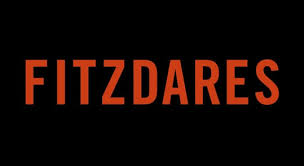RSPCA lottery review
In 1824, London vicar Arthur Broome, along with 22 other founding members including MPs William Wilberforce and Richard Martin, established the Society for the Prevention of Cruelty to Animals (SPCA) at Old Slaughters Coffee House – it was the world’s first national animal protection society. This was the start of the RSPCA, which, since then has worked tirelessly to advocate for animal welfare and combat cruelty. William Wilberforce, known for his efforts to end slavery, shifted his focus to animal rights, and Richard Martin, “Humanity Dick,” famously brought a cruelty case against Bill Burns for mistreating a donkey, a pivotal moment when the donkey was brought to court to display its injuries. In those days animal compassion was uncommon, and animals were primarily seen as commodities for human use, whether as a source of food, transport, or sport.
The early RSPCA concentrated on changing public perceptions and indifference towards animal cruelty, ultimately earning Queen Victoria’s approval in 1840 to be known as the Royal Society for the Prevention of Cruelty to Animals. This royal endorsement marked a turning point, and the RSPCA’s efforts continued to grow both in the UK and globally. Today, the RSPCA is a charity and receives no government funding. It has numerous staff, including 323 inspectors and volunteers, all focused on safeguarding every animals, whether they are farm animals, wildlife, pets, or research animals.
Lottery Details
The RSPCA lottery holds its draws every Friday, offering participants the chance to claim a total of 100 cash prizes, with the jackpot amounting to £1,000. These prizes are distributed as follows: 95 prizes valued at £10, a fifth prize worth £100, a fourth prize of £100, a third prize amounting to £150, and a second prize of £250.
Joining the RSPCA lottery, makes you eligible not only for the weekly draws but you are also automatically entered into the quarterly ‘Superdraws.’ These special draws present the opportunity to win larger sums of money, with a top prize of £10,000 available in the Summer Superdraw, while both the Spring and Autumn Superdraws feature a £5,000 jackpot. The Winter Superdraw, has a lower maximum prize of £2,000 but comes with a luxurious Christmas hamper.
How to Play
Participating in the RSPCA lottery costs just £1 per week and the lottery is drawn every Friday. You have the opportunity to enter up to three times in each draw. The entry process is convenient; you can simply fill in the online form on their website, or you have the option to reach out to their team via phone. Upon registration, you’ll receive a welcome pack from the RSPCA within a fortnight. This package includes comprehensive information about how the lottery functions, featuring your unique and unchanging numbers for every draw, as well as the date of your initial draw.
Odds
In 2022, players in the RSPCA’s standard Weekly Lotteries had a winning chance of 1 in 568.
How much does the RSPCA make from entries
This is quite a controversial subject at the moment as it was recently revealed that over 74% of the funds raised from the RSPCA’s lottery are spent on administration and expenses, with just 20% going towards the charity’s essential work, in accordance with the minimum requirement set by the Gambling Commission. In 2022, the RSPCA generated £3,335,704 from various lotteries, resulting in approximately £2.5 million being used on operational costs. The Gambling Commission mandates that a minimum of 20% must be used for charitable purposes. This situation has raised questions about the RSPCA’s financial prudence, with some suggesting the Charity Commission should investigate. The RSPCA states it’s committed to cost efficiency and adhering to regulatory guidelines.
RSPCA’s Impact
For nearly two centuries, the RSPCA, has played a pivotal role in championing animal welfare. The Society’s influence extends worldwide, inspiring the establishment of similar organisations in the United States, Australia, and New Zealand. Throughout its history, the RSPCA campaigned for improved animal protection, leading to groundbreaking legislation like the Protection of Animals Act in 1911 and the recognition of animals as sentient beings by the European Union in 1999. Some of their most significant achievements include the ban on sow stalls, the end of conventional battery cages, and the prohibition of fur farming. In 2006, the Animal Welfare Act marked a pivotal shift, allowing for the prevention of cruelty to animals before it occurred. Wales, in 2010, became the first nation to ban electronic shock collars for pets. The RSPCA continued its relentless efforts, culminating in a ban on cosmetic testing on animals and the prohibition of wild animals in circuses in England in 2019.
RSPCA Success Stories
Freddie, a blue French bulldog, was discovered abandoned in a ditch in a terrible condition. He was suffering from severe sores and showed signs of deep depression. After receiving several weeks of medical care, he was placed with one of the RSPCA’s foster caregivers who nursed him back to health over the course of a few months. Once he was on the road to recovery, Freddie was neutered and had surgery to widen his nostrils, improving his breathing. Today, he has found a loving new home, where he is a treasured companion.
Our Verdict on the RSPCA Lottery
Playing the RSPCA lottery offers you a chance to win attractive cash prizes whilst supporting an organisation with a rich history of advocating for animal welfare.
Despite recent contention over how the RSPCA spend their lottery money, there is no denying the impact their work has had on animal welfare over the last two centuries.
By participating in the RSPCA lottery, you are helping to create a kinder world for animals. With no government support donations are vital to ensure the continued success of the RSPCA’s work.





)
.png)


)


















.png)













)











































.png)


)












)
.png)











)













)








.png)
.png)



)


)




















)








)




-qhmp17w/lucky-louis-logo-(1))

)



.png)


















)
















.png)






























)

(1).png)





.png)





)













-mx2oAla/stakers-logo-(1))









































.png)

.png)









)
